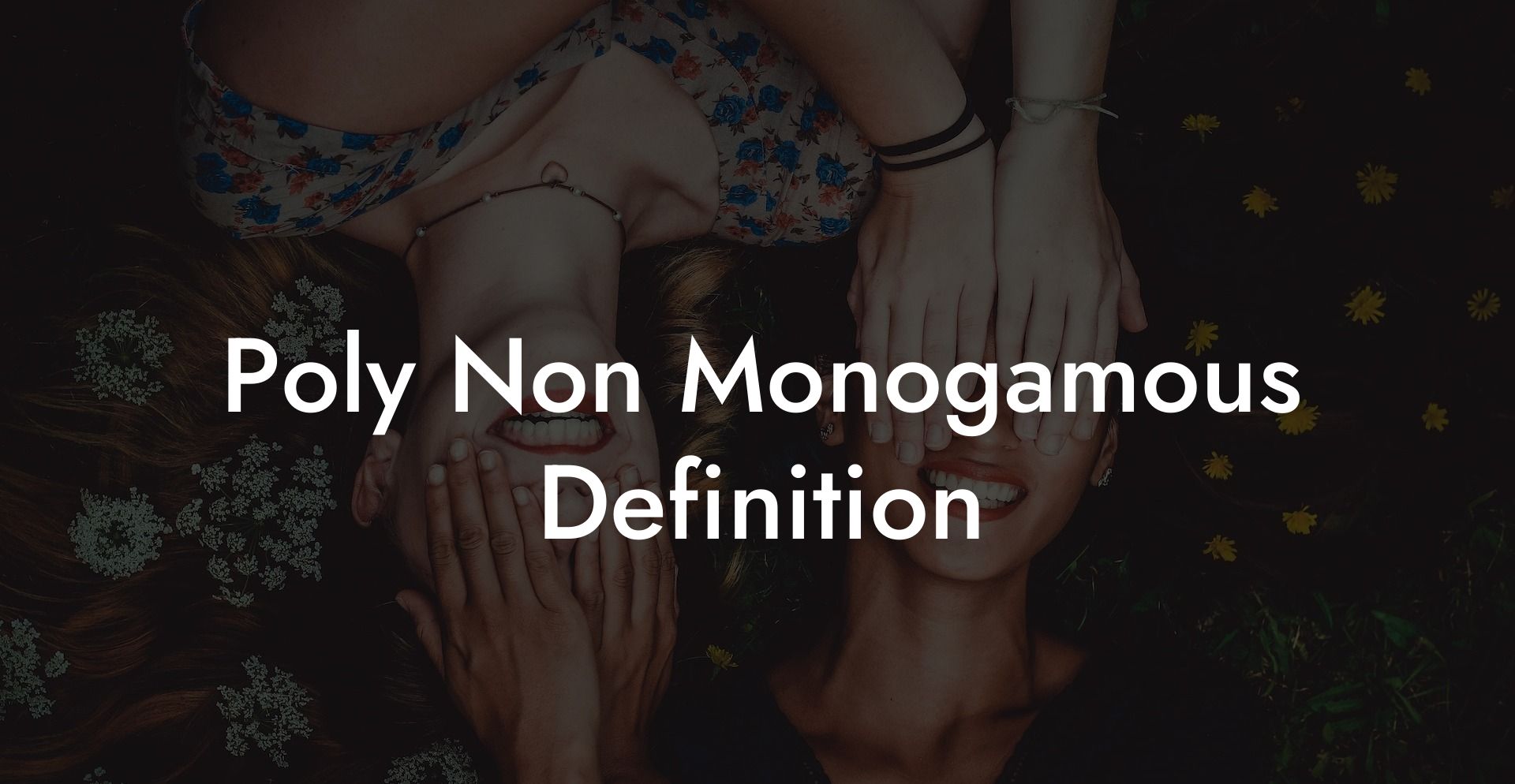As society continues to evolve, so do our definitions of relationships and the boundaries within them. One term that has become more prevalent in recent years is "poly non-monogamous." In The Monogamy Experiment, we aim to provide clear and concise information to better understand this unique relationship dynamic, now picking up interest among the masses.
Poly Non Monogamous Definition Table of Contents
What does Poly Non-Monogamous Mean?
Types of Poly Non-Monogamous Relationships
Communication and Boundaries in Poly Non-Monogamous Relationships
What does Poly Non-Monogamous Mean?
Poly non-monogamy is an umbrella term for a variety of relationship styles that involve multiple partners, with the consent and knowledge of all participants. Poly non-monogamous relationships are not confined to a single structure, allowing for a wide range of possibilities and flexibility in how partners navigate and define their connections.
Types of Poly Non-Monogamous Relationships
Within the realm of poly non-monogamous relationships, there are several categories and types, including:
Polyamory
Polyamory refers to the practice of engaging in multiple romantic or sexual relationships simultaneously, with the knowledge and consent of all parties involved. Emotional connections are the key component of polyamorous relationships.
Open Relationships
Open relationships are defined by an agreement between partners to maintain a primary connection while allowing for additional sexual relationships. Emotional connections with secondary partners may be minimal, and the focus of the relationship remains within the primary couple's bond.
Swinging
Swinging involves the practice of exchanging sexual partners with other couples within a social setting. Swingers typically maintain an emotional bond with their primary partner and engaging in sexual activities with others for pleasure rather than forming emotional connections.
Communication and Boundaries in Poly Non-Monogamous Relationships
Open communication is crucial in maintaining healthy poly non-monogamous relationships, which also involves:
- Setting boundaries and rules that all parties agree to uphold.
- Determining the level of emotional and physical connection allowed with other partners.
- Establishing trust amongst all participants.
- Respecting each partner's autonomy.
- Continuous communication and check-ins to address any issues or changes in the relationship dynamics.
Challenges of Poly Non-Monogamous Relationships
Some common challenges faced in poly non-monogamous relationships include:
- Jealousy and insecurity – Partners deal with these emotions differently, and addressing them head-on is essential for the relationship's stability.
- Time management – Balancing multiple relationships requires effective planning and time management.
- Managing social stigma – Society is slowly becoming more accepting of poly non-monogamous relationships, but there is still a prevalent stigma that requires a strong foundation of self-assurance among partners.
- Legal and logistical barriers – Some laws and systems are built around monogamous marriages, making it difficult for poly non-monogamous relationships to navigate areas such as child custody, inheritance, or healthcare decision-making.
Poly Non Monogamous Definition Example:
The example of Anne and John, a couple in a polyamorous relationship, demonstrates poly non-monogamous relationship dynamics. With a bond spanning eight years, they've established a solid foundation of trust and communication, enabling them to explore secondary relationships without guilt or jealousy. When one of them becomes interested in a new partner, they communicate openly with the other, creating a space for honest conversations about how the new connection may impact their primary relationship.
Poly non-monogamous relationships may not be for everyone, but they can offer unique and fulfilling experiences for those willing to explore unconventional relationship dynamics. As you embark on your own journey of understanding and embracing non-monogamous connections, The Monogamy Experiment is your go-to source for trustworthy and comprehensive guides to enhance your experience. Share this article with curious friends and continue exploring our resources to deepen your understanding and knowledge of poly non-monogamy.













